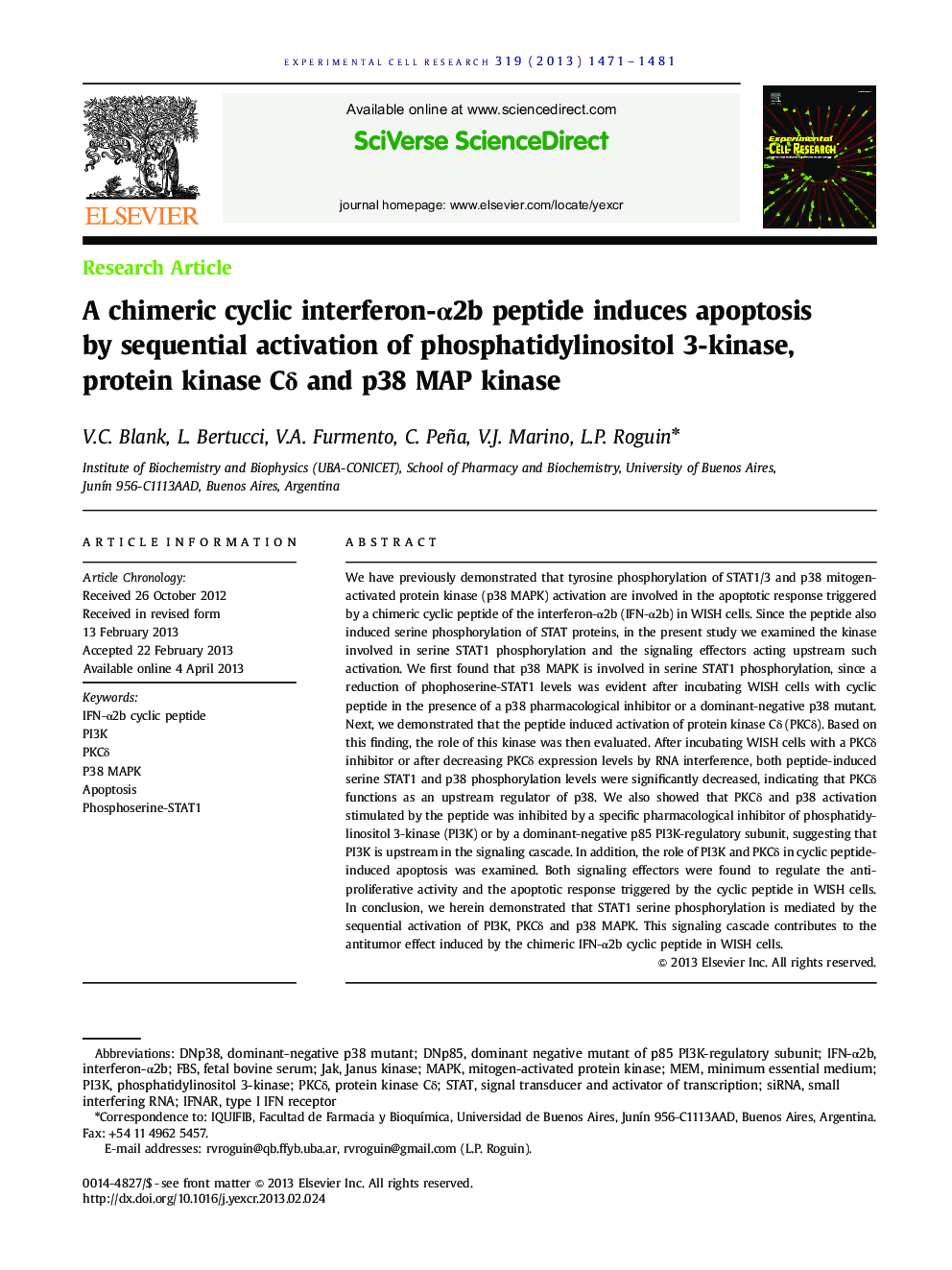| کد مقاله | کد نشریه | سال انتشار | مقاله انگلیسی | نسخه تمام متن |
|---|---|---|---|---|
| 2130446 | 1086573 | 2013 | 11 صفحه PDF | دانلود رایگان |

• We studied the signaling pathways triggered by a chimeric cyclic IFN-α2b peptide.
• STAT1 serine phosphorylation was mediated by PKCδ and p38 MAPK activation.
• PI3K behaves as an upstream regulator of PKCδ and p38 MAPK.
• The signaling cascade involved in the peptide-induced antitumor effect is proposed.
We have previously demonstrated that tyrosine phosphorylation of STAT1/3 and p38 mitogen-activated protein kinase (p38 MAPK) activation are involved in the apoptotic response triggered by a chimeric cyclic peptide of the interferon-α2b (IFN-α2b) in WISH cells. Since the peptide also induced serine phosphorylation of STAT proteins, in the present study we examined the kinase involved in serine STAT1 phosphorylation and the signaling effectors acting upstream such activation. We first found that p38 MAPK is involved in serine STAT1 phosphorylation, since a reduction of phophoserine-STAT1 levels was evident after incubating WISH cells with cyclic peptide in the presence of a p38 pharmacological inhibitor or a dominant-negative p38 mutant. Next, we demonstrated that the peptide induced activation of protein kinase Cδ (PKCδ). Based on this finding, the role of this kinase was then evaluated. After incubating WISH cells with a PKCδ inhibitor or after decreasing PKCδ expression levels by RNA interference, both peptide-induced serine STAT1 and p38 phosphorylation levels were significantly decreased, indicating that PKCδ functions as an upstream regulator of p38. We also showed that PKCδ and p38 activation stimulated by the peptide was inhibited by a specific pharmacological inhibitor of phosphatidylinositol 3-kinase (PI3K) or by a dominant-negative p85 PI3K-regulatory subunit, suggesting that PI3K is upstream in the signaling cascade. In addition, the role of PI3K and PKCδ in cyclic peptide-induced apoptosis was examined. Both signaling effectors were found to regulate the antiproliferative activity and the apoptotic response triggered by the cyclic peptide in WISH cells. In conclusion, we herein demonstrated that STAT1 serine phosphorylation is mediated by the sequential activation of PI3K, PKCδ and p38 MAPK. This signaling cascade contributes to the antitumor effect induced by the chimeric IFN-α2b cyclic peptide in WISH cells.
Journal: Experimental Cell Research - Volume 319, Issue 10, 10 June 2013, Pages 1471–1481